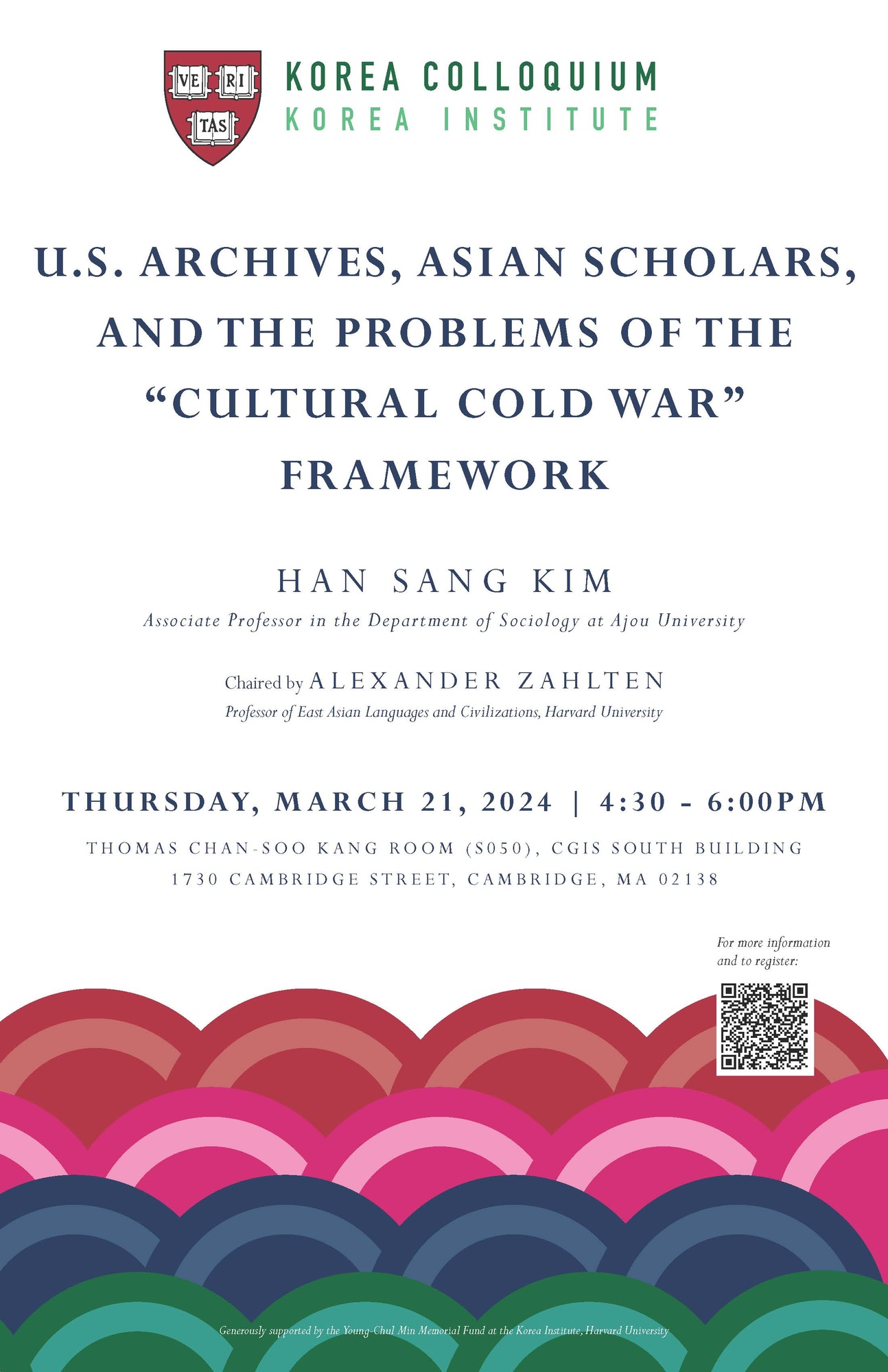Date:
Location:
***THIS EVENT HAS BEEN CANCELED***
Korea Colloquium
Han Sang Kim
Associate Professor in the Department of Sociology at Ajou University
Han Sang Kim is an Associate Professor in the Department of Sociology at Ajou University, Suwon, South Korea. His teaching interests include visual sociology, qualitative methods, and the sociology of film and media. He has conducted research and written on the themes of film archives, ethics of photographic representation, post/colonial visual culture, and mobilities. His most recent book is Cine-Mobility: Twentieth-Century Transformations in Korea’s Film and Transportation (Harvard University Asia Center, 2022) which traces the association between cinematic visuality and modern transportation mobility in forming a modern subjectivity in twentieth-century Korea. He has been concurrently working on his second book project based on his doctoral dissertation on U.S. film propaganda activities toward South Korea from 1945 through 1972, putting on a self-reflexive critique of information-oriented archival approaches to film materials and expanding the project onto a methodological exploration. He has published essays in positions: asia critique, The Journal of Asian Studies, Journal of Korean Studies, Inter-Asian Cultural Studies, and several other journals in Korean. He is currently the Vice President-Elect of the International Visual Sociology Association. He was a Fellow at the Harvard Korea Institute during the AY 2013-14 and taught at UC San Diego, Boston University, and Rice University during his postdoctoral years.
Chaired by Alexander Zahlten, Professor of East Asian Languages and Civilizations, Harvard University
Abstract:
This talk reviews the recent literature on “cultural Cold War” studies in both the Anglophone and South Korean academia. The “cultural Cold War” framework has been introduced to Korean studies relatively recently, criticizing the previous literature on the history of the Cold War. While the conventional diplomatic historiography of the Cold War focused on military, political, and economic issues as primary factors, this alternative framework has had particular significance in its emphasis on culture at the level of strategies. That is, culture did not function merely as a byproduct of those conventional strategic factors, but in and of itself took an active strategic role in the global conflict, according to this framework. However, this understanding can also lead to a narrow sense of culture. The idea that culture was considered at the strategic level so as to be actively used by the primary actors of the Cold War can limit the semantic range of the term, culture, to something the strategy-sender could design, produce, and distribute. Thus, while the “cultural Cold War” framework regards culture as “the strategy in general” to “seize hegemony” (Tsuchiya 2009, 11-12), it fails to recognize that such hegemonic order or structure itself is culture.
***
To attend this online event, please register here.
Generously supported by the Young-Chul Min Memorial Fund at the Korea Institute, Harvard University